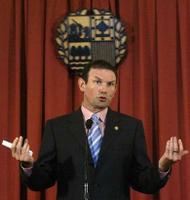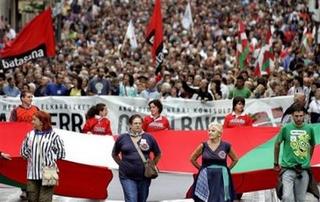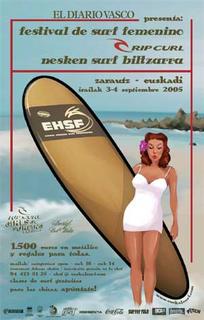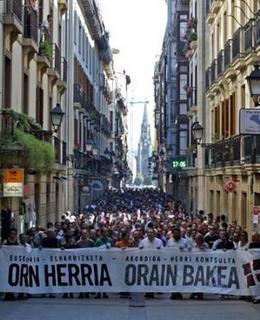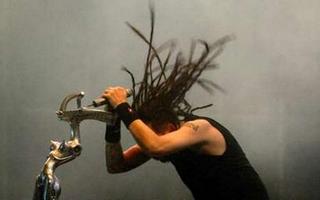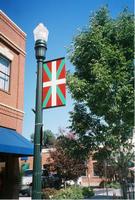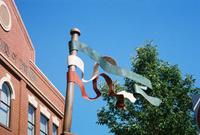Will it be the luck of the Basques?
There has been a lot of talk in the media about the recent announcement by the IRA to disarm. Many hope that this will be a final sign for ETA to give up the armed struggle.
Any move towards a peaceful resolution of the conflict is welcomed, and yes, a lot of parallels can be drawn in regards of the two struggles.
Ironically enough, Rodriguez Zapatero who claims to be all for dialogue, issued an statement that just doesn't make sense according to an article appeared at Deutsche Welle:
Spanish politicians of all hues were quick to welcome the IRA move. Prime Minister Jose Luis Rodriguez Zapatero called it "great news," but was quick to add that the situation in the Basque region is very different from Northern Ireland.
Correct Mr. Rodriguez Zapatero, it is very different, and it is mainly because of the arrogant and repressive approach by Madrid to the issue.
Look, the article goes into it:
It is true that the IRA's political wing, Sinn Fein, was a vital part of that peace process. But in Spain, the political wing of ETA, Batasuna, was banned two years ago. The party's supporters -- numbering up to 15 percent of voters in the Basques -- say the ban curtails their basic democratic rights and makes dialogue and a peace process impossible.
On the other hand, Batasuna, unlike Sinn Fein, has never been able to distance itself from its militant wing. On numerous occasions Spanish courts have proven Batasuna's involvement in funding and supporting ETA violence.
It boils down to this; Spain's strategy is simple, criminalize everything and anything Basque. Not only political parties like the current ban on Batasuna or the push to ban EHAK, but also schools, newspapers, radio stations, unions, human rights organizations, you name it.
A country like Spain, with so many Fascist skeletons in the closet, banning a political party, is not exactly what you can call a move towards dialogue, mostly because after three years no trial has been scheduled and no solid evidence against Batasuna has been presented to the public.
At least that blood thirsty beast by the name of José María Aznar is not calling the shots any more, so yes, there is hope.
But I guess we need to wait and see.
* As I mentioned the article "ETA to Follow IRA Move to Disarm?" appeared at
Deutsche Welle, but it can also be found at
Artxiboak.
.... ... .
